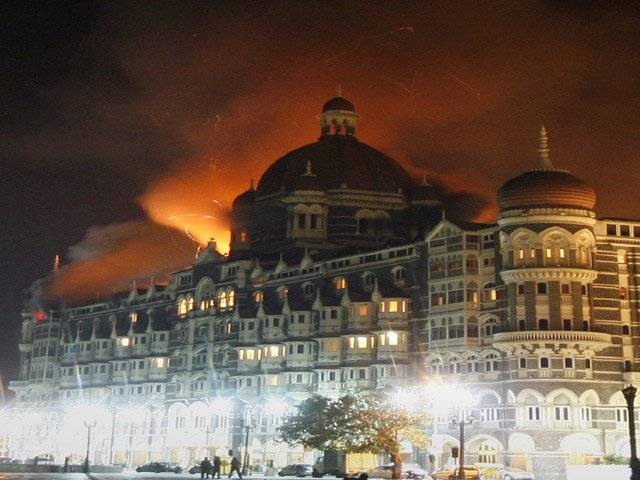An Indian newspaper 'The Hindustan Times' indicates a former Maharashtra electrician, now suspected of being the Indian handler to 26/11, was a former informant for domestic police and intelligence agencies. The presence in Pakistan of Syed Zabiuddin Ansari (29) also represents domestic-intelligence gaps as India prepares to reopen talks with Pakistan after the killing of 180 people in Mumbai on November 26, 2008. The only son of six children of an insurance agent from the dusty, central Maharashtra town of Gevrai, Ansari is one of a handful of missing, radicalised Indians capable of being used by Pakistani terrorists or their state handlers in a future attack, which intelligence and police officials across India now nervously anticipate. As a double agent, Ansari lead the Intelligence Bureau and the Maharashtra Police to the biggest arms haul outside Jammu and Kashmir in the last 10 years, security sources told HT, requesting anonymity because of the sensitivity of the case. Ansari led police to at least 43 kg of RDX (Research and Development Explosive), 16 AK-47 rifles and 4,000 rounds of ammunition concealed in computer cabinets on the outskirts of the Maharashtra city of Aurangabad on May 10, 2006. Ansari, now believed to be holed up in Karachi, fled in a blue, Tata Indica immediately after and was never seen again. If he [Zabiuddin Ansari] had helped further, we could have unearthed the entire link, said Sunil Deshmukh, a police inspector who was part of the raiding party. We believe he escaped to Pakistan via Bangladesh. He has risen in the LeT (Lashkar-e-Tayyebba) hierarchy since then. Last week, Home Minister P. Chidambaram for the first time acknowledged one of the 26/11 handlers was Indian, though he said it wasn't clear who Abu Jindal was because Pakistan refused to provide a voice print. India has no recording of Ansaris voice, Maharashtra police chief A.N. Roy confirmed to Hindustan Times. The giveaways, says intelligence agencies, were the Hindi words Abu used with the Urdu-speaking terrorists who ravaged in Mumbai on 26/11. Two examples: He used sarkar instead of hukumat; referred to 26/11 being the trailer, an English term subsumed into Bambaiyya Hindi that baffled the terrorists. Indian intelligence officials believe Ansari is likely to be Abu, but because of the sensitive nature of the information, they would not reveal what led them to this conclusion. Ansaris story was pieced together by HT from various police and intelligence sources. With terror groups itching to replicate 26/11, connecting these dots is increasingly important: Like Ansari, key radicalised Indians spread across Pakistan, the Middle East (and, increasingly, East Asia), can be used to aid attacks on India. After Ansari escaped in 2006, his recruiter, Mohammed Amir Shakeel Ahmed (33), was arrested. He told interrogators that their Nepal-based Lashkar handler, had also suspected Ansari of being a double agent. A police source said Ansari, while helping police, also recruited the first jihadi from Maharashtra, Mirza Baig, to be killed by forces in J&K;in late 2005. Specific information is hard to come by, but Ansari likely went over to the dark side after a series of religious riots in Maharashtra led men like him to believe terror was their only hope against what they saw as injustice against Muslims. The other men on the run, mostly from Maharashtra, Andhra Pradesh, Uttar Pradesh and Kerala, also slipped out through Bangladesh, followed similar paths to radicalisation. Most are educated, and some were professionals before they turned to jihad. In the 1990s, groups of radicalised Muslim youth went to Pakistan for training. That phenomenon appears to have ebbed, but some officials are not sure. We havent come across people going to Pakistan in large numbers of late, but nothing can be inferred from that that it is not going on, said Roy. (Hindustan Times)
Friday, April 19, 2024
Indian suspected of 26/11 role once worked for India's Intelligence Bureau: HT

China's EV tech offers opportunity for Pakistani auto industry
9:27 AM | April 19, 2024
PM calls for reforms to reduce circular debt
April 19, 2024
Pakistan, Turkiye to expand defence ties
April 19, 2024
20pc Discos employees involved in power theft: Minister
April 19, 2024
Five govt officials shot dead in D I Khan
April 19, 2024
Hepatitis Challenge
April 18, 2024
IMF Predictions
April 18, 2024
Wheat War
April 18, 2024
Rail Revival
April 17, 2024
Addressing Climate Change
April 17, 2024
Justice denied
April 18, 2024
AI dilemmas unveiled
April 18, 2024
Tax tangle
April 18, 2024
Workforce inequality
April 17, 2024
New partnerships
April 17, 2024
ePaper - Nawaiwaqt
Advertisement
Nawaiwaqt Group | Copyright © 2024





